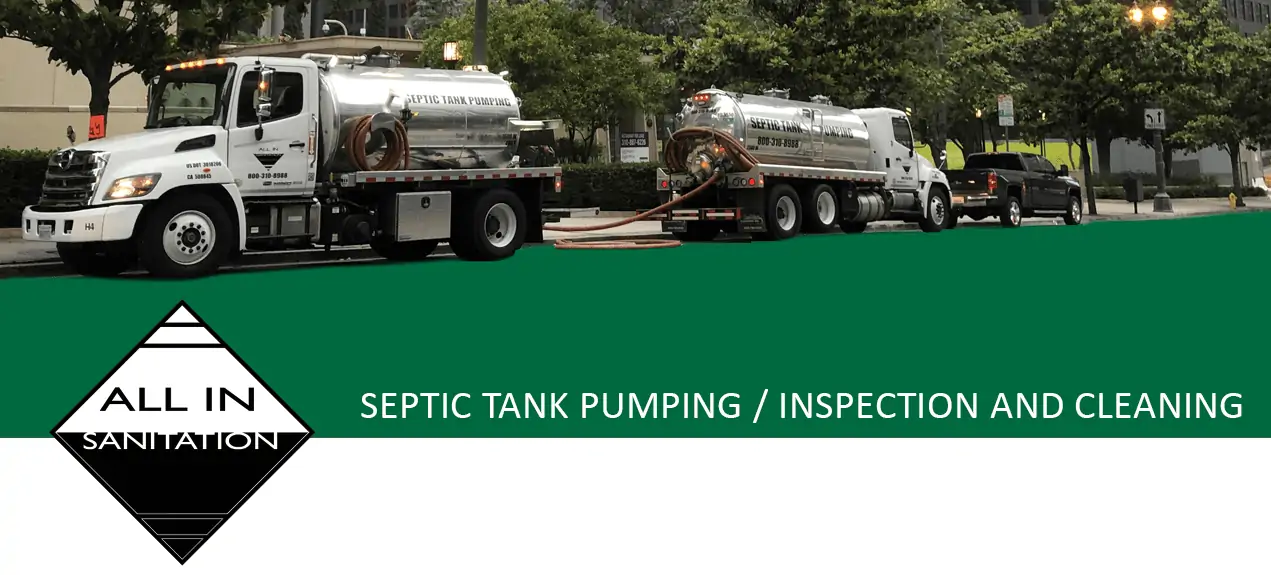Septic Tank Pumping and Cleaning
Are you in need of septic tank pumping and cleaning services? Look no further than Allinsiteservices.com! We offer a wide range of services for commercial, residential, or municipal locations. From maintenance to RV pumping to grease trap pumping to recycling/disposal facilities – we got it all! We understand the importance of regular maintenance, so we strive to make our services accessible and affordable. With years of experience under our belt, you can trust us with your septic system needs.
Septic Services Offered
We offer a range of services to get your job done quickly and easily – from inspections and maintenance for residential, commercial, and municipal locations to recycling/disposal facilities, grease trap pumping, and even RV pumping. Our septic tank services provide the perfect solution for any property owner looking to maintain their current system or install a new one. We also offer reliable recycling solutions that ensure all waste is disposed of responsibly. Additionally, we provide quality grease trap maintenance services as well as portable restroom rental for special events or job sites. Finally, if you need RV pumping services, our team can help with that too.
No matter what your needs are when it comes to septic tank maintenance and cleaning services, Allinsiteservices.com has you covered! From professional installations to regular pump-outs and disposal of materials safely, our experienced technicians will make sure your project is completed correctly every time. Contact us today to learn more about how we can help meet your needs!
Importance of Septic Tank Maintenance
Regular maintenance is essential to keep your system running smoothly and protect yourself from potential hazards. Taking preventive measures such as regular pump-outs, inspections, and cleaning can help reduce the risk of clogging or system failure, which can lead to costly repairs or replacements. Additionally, regular maintenance helps prevent health hazards caused by backed up sewage or overflows. Cost effectiveness and environmental impact should also be taken into consideration when deciding on a maintenance plan for your septic tank. Not only does proper maintenance save you money in the long run, but it also reduces your water footprint significantly. Regularly scheduled pumping can extend the life expectancy of your system and provide longevity benefits that will save you time and money in the future.
Signs of Septic Tank Emergency
Ignoring signs of a septic emergency can lead to costly and dangerous consequences – don’t wait until it’s too late! Slow drains, clogged toilets, strange smells, and wet patches are all signs of an underlying issue that should be addressed as soon as possible. If not taken care of in a timely manner, the health hazards associated with a septic system failure can be immense. Taking preventative measures such as regular maintenance and professional assistance when needed will help to ensure that any potential problems can be identified and rectified before they become more serious. Regularly scheduling maintenance from our company will also help to reduce the cost of repairs or replacements in the long-term. By scheduling your septic tank pumping and cleaning needs ahead of time with our professionals who understand how these systems work, you can ensure peace of mind knowing that if there ever is an emergency situation, you’ll have the right people on hand for fast response times and quality service.
Inspection Frequency Factors
Factoring in the age of the system, any repairs or modifications made, environmental conditions, and signs of damage or wear-and-tear is essential for determining appropriate inspection frequency. A thorough evaluation of these factors will help minimize maintenance costs and reduce the environmental impact while ensuring the septic system remains safe and functional. System modifications, aging factors, and other variables can cause significant changes to a septic tank’s efficiency over time; therefore regular inspections are necessary to maintain optimal performance. If not monitored closely, costly repairs may be needed due to a lack of preventive measures. By factoring in all relevant information and scheduling inspections accordingly, you can ensure your septic tank continues to function properly with minimal disruption.
Understanding Septic Systems
Knowing how septic systems work and the proper maintenance they require is essential for keeping your home safe and running smoothly. There are a few different types of septic systems, such as conventional gravity systems, aerobic systems, or pressure distribution systems. The installation process for these systems is complex and requires a professional to ensure it is done properly. Common problems with septic tanks include clogs or improper drainage due to lack of regular maintenance. This can cause environmental damage if not addressed quickly. DIY maintenance of septic tanks is not recommended as it can lead to further damage if done incorrectly. Regular pumping and cleaning by our professionals should be done regularly in order to keep the system functioning properly and prevent any health hazards that may arise from an unmaintained tank.
Contact Us Today For All Your Septic Needs!
It’s important to have regular septic tank maintenance, and Allinsiteservices.com makes it easy. We offer a wide range of services, from maintenance to disposal facilities, RV pumping services, and more. You’ll also get the added benefit of understanding different types of septic systems and factors for inspection frequency. So don’t wait; contact us today to keep your septic system in top condition. With our reliable team of experts, you can count on us for quality services at an affordable price.
